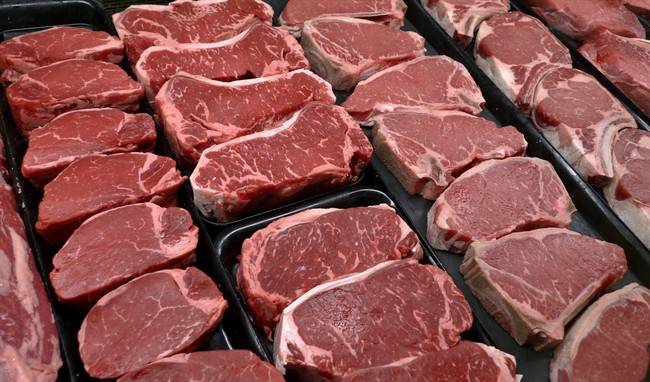Why Have There Been So Many Meat Recalls in Canada?

After a spate of food recalls across Canada, it’s easy to wonder: What is happening to the meat industry?
Hundreds of beef and veal products have been recalled by the Canadian Food Inspection Agency. The notices name dozens of retail businesses from Walmart to Pusateri’s. Longtime meat packer Ryding-Regency even had its licence suspended over E. coli concerns last month.
But an increase in recalls actually reflects a more demanding CFIA — not a dangerous meat market — said food distribution and policy researcher Sylvain Charlebois.
“The CFIA is tightening its grip on the livestock industry, which face a significant portion of recalls in Canada”
“You can see the industry is much more restrictive and much more disciplined around recalls,” said Charlebois, director of the agri-food analytics Lab at Dalhousie University, in an interview with CTVNews.ca from Halifax.
It’s no surprise to Charlebois that there have been “more and more” recalls this year. In January, a new set of safety guidelines governing the industry came into force called the Safe Food for Canadians Regulations. In 2020 and 2021, the CFIA is expected to add more requirements regarding “food commodity, type of activity and business size,” as outlined online.
“You can see that the attitude in Ottawa is actually very different,” said Charlebois. With the new framework, the CFIA is tightening its grip on the livestock industry, which face a significant portion of recalls in Canada.
While the mention of E. coli can seem alarming, the recalls are preventative actions. “There is no correlation related to safety to be honest. It’s a matter of managing risk,” said Charlebois. “You’re dealing with massive distribution networks nowadays. That’s why you can’t be as tolerant.”
Companies face significant financial risk when hit with a recall. Maple Leaf Foods experienced a 50 per cent drop in packaged meat sales after a Listeria outbreak in 2008. “You’re always one recall away from closing your doors,” said Charlebois, adding that the risks can be reputational too. Ryding-Regency Meat Packers may face similar difficulty to Maple Leaf as it moves through its current licence suspension. “Ryding is going to pay for this closure for a long time,” said Charlebois.
Despite the financial and reputational dangers, the food industry largely backs rigorous recalls as a means of sniffing out the “bad apples” who “affect the reputation of an entire sector,” said Charlebois. “Every single recall related to the livestock industry builds a case for vegetarianism.”
CBC News











